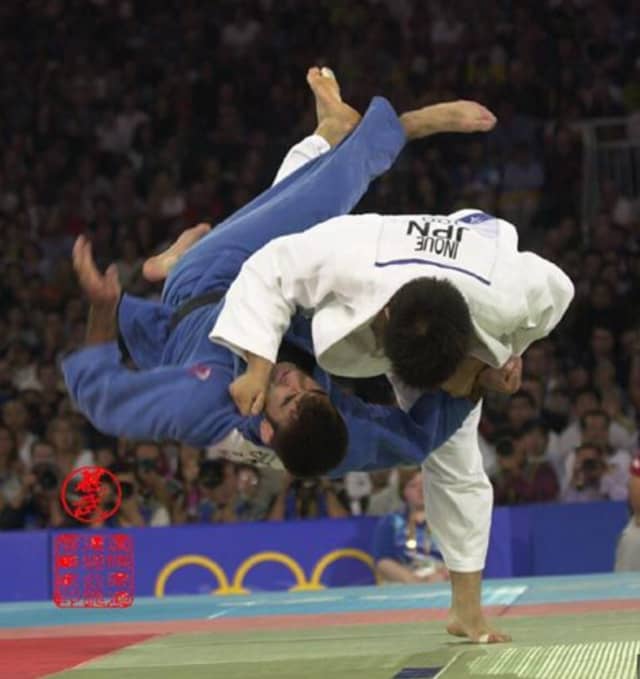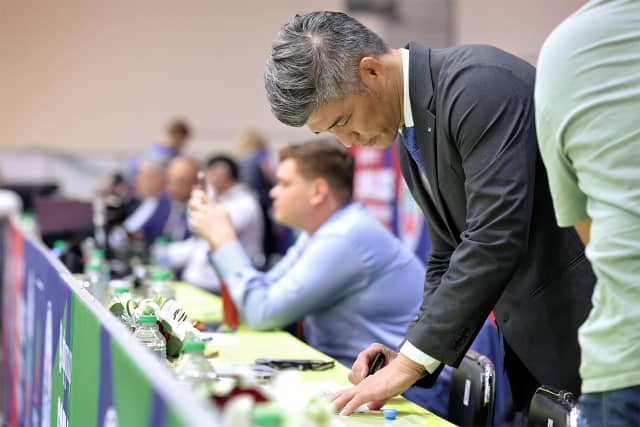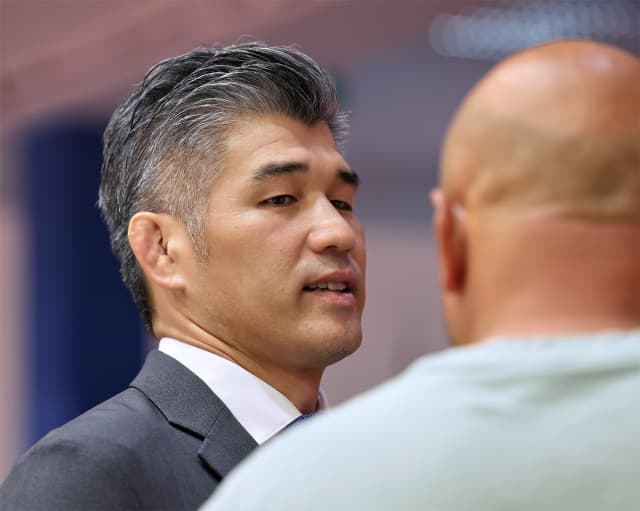As Inoue himself puts it, “I have already lived many lives in judo. I was an athlete, then a coach and now I have crossed to the other side of the barrier. It is a new challenge!”
That expertise is invaluable in understanding the evolution of modern judo. Watching the OTP Group Cadet World Championships 2025 in Sofia, he sees more than just results. “Here in Sofia we are discovering a new generation of judoka. That alone is fascinating. I am already looking forward to following them in the coming years, to see how they develop. I am particularly impressed by the performance levels and preparation of nations such as Kazakhstan, Uzbekistan and the athletes competing under the IJF flag.”
Yet Inoue insists that cadet competition is only the beginning of a much longer journey. “Winning here is obviously important. Every athlete wants to win but this is just one step, certainly not the final goal. Victory always has a special flavour but I believe it is equally, if not more, important to be here to learn, to make connections with other nations and to gather precious information for the future.”
When he was a cadet himself, Inoue did not enjoy the same international exposure. “Of course I competed but only in Japan. We didn’t have these opportunities. Even as a junior I fought exclusively at home.”
Japan has begun to make its presence felt in Sofia but as Inoue explains, the context matters, “We don’t have a full team here. During the summer there were important school competitions in Japan that required many of our judoka to stay at home. This is only one stage in a career that we want to be as long as possible.”
More broadly, Inoue is struck by what he has seen over the past three days, “These young judoka are becoming increasingly technical and are showing real ability. There is also a good spirit among them. I don’t know if we had the same in my time but every generation has its own strengths. Personally, I only had one objective: to become world and Olympic champion.”
That ambition was sparked early. Inoue began judo at the age of five, alongside his brother, in the dojo run by their father. “My father was relatively small, 1.70m tall, 72 kg, but I was impressed by his ability to throw. His ashi-waza and uchi-mata were models for me and I drew great inspiration from him.” The turning point came at 19, when he won the All Japan Junior Championship during his first year at university. “That’s when I really realised my potential. In the following year I became Asian champion and at 21 I won my first world title, in 1999.”
Now, 25 years later, Kosei Inoue has moved into leadership. Elected to the IJF Executive Committee in June in Budapest, he takes on responsibilities that stretch far beyond the tatami. “I am very happy to have joined the IJF team. It is difficult work but exciting and it carries a lot of responsibility. I want to contribute to the development of judo at the world level, not only in Japan. My dream goes further still, to contribute to the development of society itself, guided by the values of judo.”
This desire to contribute to society is deeply rooted in the philosophy of judo itself and in this spirit Inoue also leads the NGO Judos, a project dedicated to spreading the values of judo beyond sport, into education and social development.



